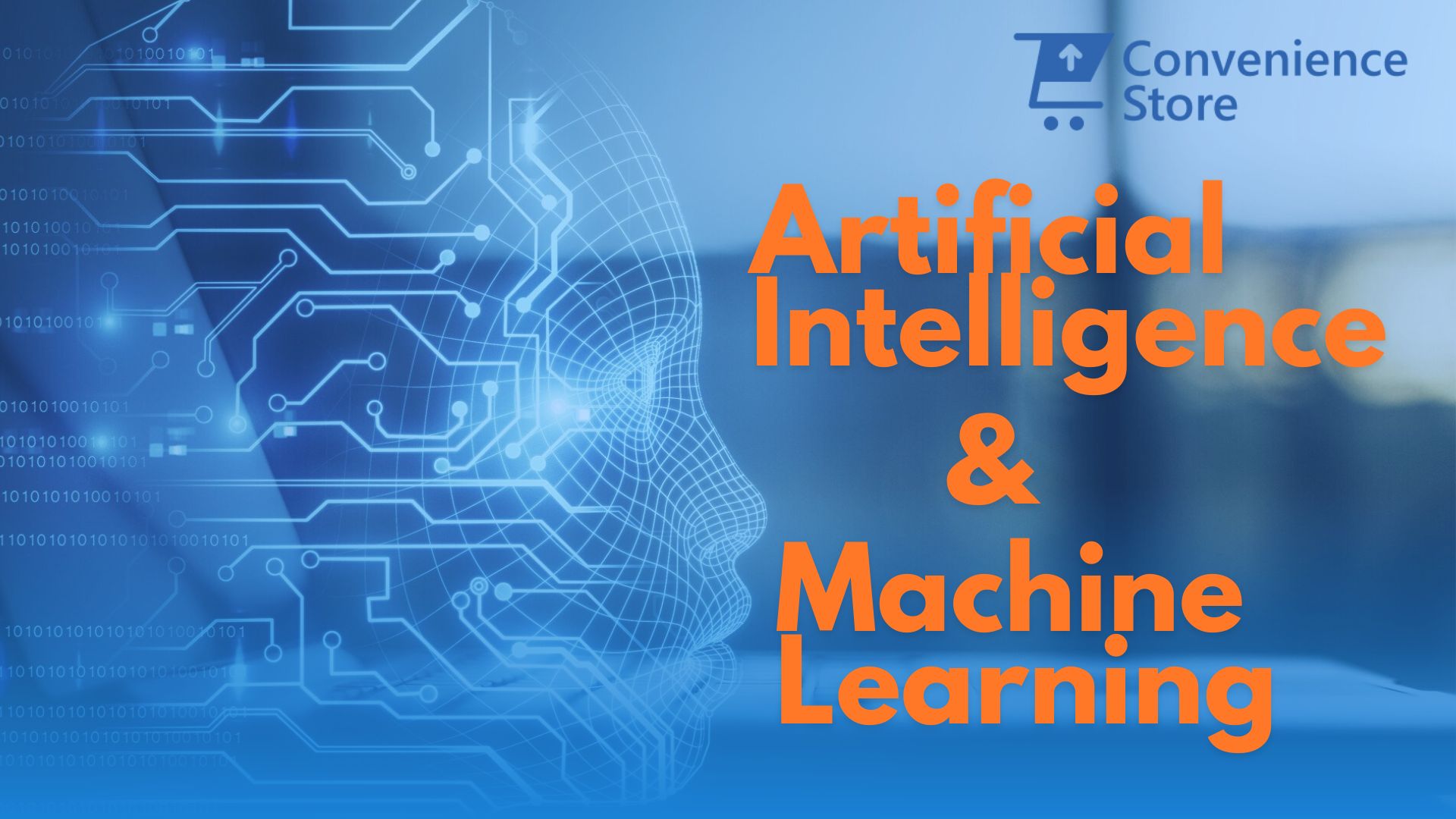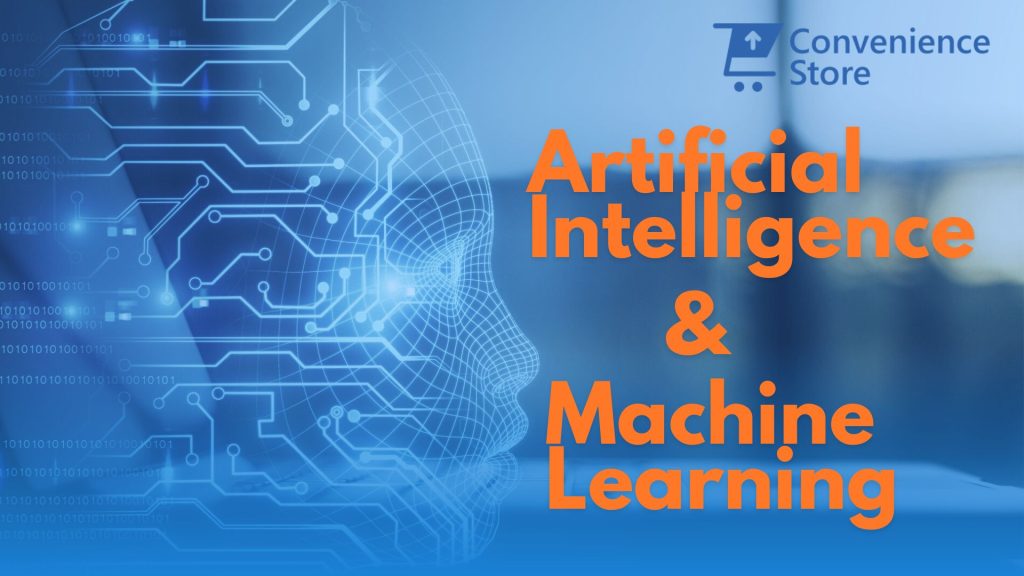The Role of AI and Machine Learning in Modern Laptops


The world of laptops is constantly evolving, with new technologies emerging and transforming the way we interact with these devices. One of the most significant advancements in recent years has been the integration of artificial intelligence (AI) and machine learning (ML). These powerful technologies are revolutionizing the laptop experience, enhancing productivity, improving user experience, and opening up a world of possibilities.
Artificial Intelligence in Computing: A New Era of Computing
Artificial intelligence, often referred to as AI, is a branch of computer science that focuses on creating intelligent machines capable of performing tasks that typically require human intelligence. These tasks include learning, problem-solving, decision-making, and understanding natural language. AI systems are designed to learn from data and improve their performance over time, mimicking human cognitive abilities.
Machine learning, a subset of AI, involves training algorithms on large datasets to enable them to recognize patterns, make predictions, and perform tasks without explicit programming. ML algorithms can learn from experience, adapt to new data, and continuously improve their accuracy.
The Rise of AI-Powered Laptops
The introduction of AI and machine learning into the realm of laptops has ushered in a new era of intelligent computing. By leveraging the power of these advanced technologies, laptop manufacturers have been able to develop devices that can adapt, learn, and respond to the unique needs and preferences of their users.
One of the key ways AI is shaping the future of laptops is through AI-driven features. From intelligent voice assistants that can carry out commands and provide personalized recommendations, to advanced computer vision algorithms that enable seamless facial recognition and enhanced security, AI is redefining the way users interact with their laptops.
For instance, modern AI-powered laptops might feature voice-controlled virtual assistants that can schedule appointments, set reminders, and even control smart home devices with simple voice commands. These AI-powered assistants can also analyze user behavior and preferences to offer tailored suggestions, such as recommending relevant applications, optimizing system settings, or providing personalized content recommendations.
Benefits of AI in Laptops: A Seamless and Intelligent Experience
The integration of AI and ML in modern laptops offers numerous benefits for users, including:
- Increased Productivity: AI-powered features streamline tasks, automate processes, and provide intelligent assistance, allowing users to focus on their work and be more productive.
- Enhanced User Experience: AI makes laptops more intuitive, responsive, and personalized, creating a seamless and enjoyable user experience.
- Improved Security: AI-driven security features protect sensitive data, prevent unauthorized access, and safeguard against malicious threats.
- Personalized Recommendations: AI algorithms provide tailored recommendations for apps, content, and services, helping users discover new options and save time.
- Optimized Performance: AI optimizes laptop performance, ensuring smooth operation even under heavy workloads.
AI-Driven Features in Laptops: Enhancing Productivity and User Experience
The integration of AI and ML into modern laptops has led to a wide range of innovative features that enhance productivity, improve user experience, and streamline daily tasks. These features are designed to make laptops smarter, more intuitive, and more responsive to user needs.
1. AI-Powered Assistants:
AI-powered assistants like Cortana, Siri, and Google Assistant are now integrated into many laptops, providing users with a personalized and hands-free experience. These assistants can understand natural language, respond to voice commands, and perform various tasks such as setting reminders, sending emails, searching the web, and controlling smart home devices.
2. Smart Battery Management:
AI algorithms can analyze battery usage patterns and optimize power consumption, extending battery life and ensuring that users have enough power for their daily tasks. These algorithms can predict when the battery is likely to run out and suggest ways to conserve power, such as dimming the screen or reducing background processes.
3. Predictive Text and Autocorrect:
AI-powered text prediction and autocorrect features analyze user input and suggest relevant words or phrases, speeding up typing and reducing errors. These features learn from user preferences and improve their accuracy over time, making typing more efficient and enjoyable.
4. Enhanced Security:
AI and ML are playing a crucial role in enhancing laptop security. Facial recognition, fingerprint scanning, and malware detection systems use AI algorithms to identify and authenticate users, prevent unauthorized access, and protect sensitive data from malicious threats.
5. Personalized Recommendations:
AI algorithms can analyze user preferences, browsing history, and app usage to provide personalized recommendations for apps, content, and services. These recommendations can help users discover new content, find relevant information, and save time by suggesting the most suitable options.
6. Optimized Performance:
AI can optimize laptop performance by dynamically allocating resources to different applications based on user needs. These algorithms can prioritize tasks, manage background processes, and ensure that the laptop runs smoothly even under heavy workloads.
Machine Learning Technology in Laptops: Powering Intelligent Applications
Machine learning algorithms are powering a growing number of intelligent applications in modern laptops, including:
- Image Recognition: ML algorithms can identify objects and scenes in images, enabling features like automatic photo tagging, object detection, and scene recognition.
- Natural Language Processing (NLP): NLP algorithms enable laptops to understand and respond to natural language, powering features like voice assistants, text prediction, and language translation.
- Predictive Analytics: ML algorithms can analyze data patterns and predict future outcomes, enabling features like predictive maintenance, fraud detection, and personalized recommendations.
- Computer Vision: ML algorithms enable laptops to understand and interpret visual information, powering features like object tracking, facial recognition, and augmented reality.
Machine Learning Technology in Laptops: Powering Intelligent Applications
Machine learning algorithms are powering a growing number of intelligent applications in modern laptops, including:
- Image Recognition: ML algorithms can identify objects and scenes in images, enabling features like automatic photo tagging, object detection, and scene recognition.
- Natural Language Processing (NLP): NLP algorithms enable laptops to understand and respond to natural language, powering features like voice assistants, text prediction, and language translation.
- Predictive Analytics: ML algorithms can analyze data patterns and predict future outcomes, enabling features like predictive maintenance, fraud detection, and personalized recommendations.
- Computer Vision: ML algorithms enable laptops to understand and interpret visual information, powering features like object tracking, facial recognition, and augmented reality.
The integration of AI and ML into modern laptops has led to a wide range of innovative features that enhance productivity, improve user experience, and streamline daily tasks. These features are designed to make laptops smarter, more intuitive, and more responsive to user needs.
Enhancing Laptop Performance and User Experience with AI and ML
AI-Powered Assistants: AI-powered assistants like Cortana, Siri, and Google Assistant are now integrated into many laptops, providing users with a personalized and hands-free experience. These assistants can understand natural language, respond to voice commands, and perform various tasks such as setting reminders, sending emails, searching the web, and controlling smart home devices.
Smart Battery Management: AI algorithms can analyze battery usage patterns and optimize power consumption, extending battery life and ensuring that users have enough power for their daily tasks. These algorithms can predict when the battery is likely to run out and suggest ways to conserve power, such as dimming the screen or reducing background processes.
Predictive Text and Autocorrect: AI-powered text prediction and autocorrect features analyze user input and suggest relevant words or phrases, speeding up typing and reducing errors. These features learn from user preferences and improve their accuracy over time, making typing more efficient and enjoyable.
Enhanced Security: AI and ML are playing a crucial role in enhancing laptop security. Facial recognition, fingerprint scanning, and malware detection systems use AI algorithms to identify and authenticate users, prevent unauthorized access, and protect sensitive data from malicious threats.
Personalized Recommendations: AI algorithms can analyze user preferences, browsing history, and app usage to provide personalized recommendations for apps, content, and services. These recommendations can help users discover new content, find relevant information, and save time by suggesting the most suitable options.
Optimized Performance: AI can optimize laptop performance by dynamically allocating resources to different applications based on user needs. These algorithms can prioritize tasks, manage background processes, and ensure that the laptop runs smoothly even under heavy workloads.
Enhancing Laptop Performance with Machine Learning
Adaptive Power Management: One of the areas where machine learning has made a significant impact is in adaptive power management. By leveraging ML algorithms, laptops can now dynamically adjust their power consumption based on the user’s usage patterns and workload. This allows for more efficient battery utilization, enabling users to enjoy extended battery life without sacrificing performance. These ML-powered systems can learn to predict user behavior and optimize system resources accordingly, ensuring efficient battery use during both intensive and light tasks.
Intelligent Thermal Control: Another area where machine learning has transformed laptop technology is in intelligent thermal control. Modern laptops are equipped with advanced cooling systems that utilize ML algorithms to monitor and manage the device’s thermal performance. These systems can analyze real-time data from various sensors to maintain optimal operating temperatures. By continuously learning and adapting to the user’s usage patterns and environmental conditions, these ML-powered thermal control systems can proactively adjust fan speeds and optimize airflow to ensure the laptop remains cool and responsive, regardless of the task at hand.
Enhanced User Experience and Security
Personalized Recommendations: AI-powered laptops can leverage machine learning algorithms to analyze user behavior, browsing history, and activity patterns to provide personalized recommendations. This might include suggesting relevant applications, curating content based on user interests, or offering customized productivity tips and tools. By understanding the user’s preferences and habits, these AI-driven recommendation systems can help streamline workflows, improve productivity, and enhance the overall user experience.
Adaptive User Interfaces: AI and machine learning are also shaping the user experience through adaptive user interfaces. These intelligent interfaces can dynamically adjust the layout, menus, and settings based on the user’s needs and preferences. For example, an AI-powered laptop might detect when a user is primarily engaged in content creation tasks and automatically optimize the user interface to provide quick access to relevant tools and shortcuts. Conversely, during leisure activities like media consumption, the interface might adapt to emphasize entertainment-focused features and controls.
Advanced Threat Detection: AI-powered security systems in laptops can leverage machine learning algorithms to detect and respond to potential threats in real-time. These systems can analyze network traffic, system logs, and user behavior patterns to identify anomalies or suspicious activities that may indicate the presence of malware, unauthorized access attempts, or other security breaches. By continuously learning and adapting to new threat patterns, these AI-driven security solutions can provide an added layer of protection, helping to safeguard users’ sensitive data and ensure the overall integrity of the laptop.
Biometric Authentication: AI and machine learning enhance laptop security through biometric authentication methods. Laptops equipped with facial recognition, fingerprint scanners, or iris-scanning capabilities can leverage these advanced technologies to provide a seamless and secure alternative to traditional password-based login systems. These biometric authentication systems rely on machine learning algorithms to accurately and reliably identify authorized users, significantly reducing the risk of unauthorized access or identity theft.
The Future of AI and Machine Learning in Laptops
As technology continues to evolve, the integration of AI and machine learning in laptops is poised to become even more pervasive and transformative. Laptop manufacturers are constantly exploring new ways to leverage these advanced technologies to deliver even greater performance, efficiency, and user-centric experiences.
Predictive Maintenance and Diagnostics
One emerging application of AI and machine learning in laptops is predictive maintenance and diagnostics. By analyzing sensor data and usage patterns, AI-powered systems can detect potential hardware or software issues before they manifest, allowing users to proactively address problems and maintain the optimal performance of their laptops.
These predictive maintenance algorithms can also help identify the root causes of performance bottlenecks or system failures, providing users with personalized recommendations for troubleshooting or upgrading their devices.
Intelligent Workflow Optimization
As AI and machine learning technologies continue to mature, we can expect to see even more sophisticated workflow optimization capabilities in modern laptops. By understanding user behavior, task patterns, and productivity preferences, these intelligent systems can offer personalized recommendations, automate repetitive tasks, and seamlessly integrate with various productivity tools and platforms.
This level of intelligent workflow optimization can lead to significant improvements in overall productivity, helping users to streamline their work processes and focus on their core responsibilities.
Collaborative AI Assistants
The future of AI-powered laptops may also include the emergence of collaborative AI assistants. These advanced virtual companions can work alongside users, providing contextual support, task automation, and even creative ideation to enhance the overall user experience.
Imagine a laptop-based AI assistant that can not only carry out commands and manage daily tasks but also contribute to brainstorming sessions, offer writing suggestions, or provide domain-specific expertise. As AI and machine learning technologies continue to evolve, the potential for these collaborative AI assistants to become indispensable productivity partners is immense.
The integration of AI and machine learning in modern laptops has ushered in a new era of intelligent computing, transforming the way users interact with their devices and unlocking unprecedented capabilities. From enhanced performance and power management to improved security and personalized user experiences, these advanced technologies are redefining the laptop landscape.
As laptop manufacturers continue to push the boundaries of innovation, the role of AI and machine learning in shaping the future of personal computing will only become more pronounced. By leveraging the power of these transformative technologies, laptop users can look forward to even more intuitive, efficient, and seamless computing experiences that will empower them to achieve their personal and professional goals.
Whether you’re a seasoned tech enthusiast or a casual laptop user, the advancements in AI and machine learning are sure to have a lasting impact on the way you interact with and derive value from your computing device. As we move forward, the integration of these cutting-edge technologies in modern laptops will undoubtedly continue to shape the future of personal computing, revolutionizing the way we work, communicate, and experience the digital world.




